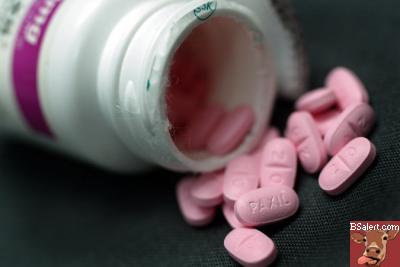|
|
New Analysis Of Drugmaker Data Reveals Paxil Is Dangerous
Posted by Pile
(16256 views) |
 [Biotech] |
 Fourteen years ago, a leading drug maker published a study showing that the antidepressant Paxil was safe and effective for teenagers. On Wednesday, a major medical journal posted a new analysis of the same data concluding that the opposite is true. Fourteen years ago, a leading drug maker published a study showing that the antidepressant Paxil was safe and effective for teenagers. On Wednesday, a major medical journal posted a new analysis of the same data concluding that the opposite is true.That study — featured prominently by the journal BMJ — is a clear break from scientific custom and reflects a new era in scientific publishing, some experts said, opening the way for journals to post multiple interpretations of the same experiment. It comes at a time of self-examination across science — retractions are at an all-time high; recent cases of fraud have shaken fields as diverse as anesthesia and political science; and earlier this month researchers reported that less than half of a sample of psychology papers held up. | |
“This paper is alarming, but its existence is a good thing,” said Brian Nosek, a professor of psychology at the University of Virginia, who was not involved in either the original study or the reanalysis. “It signals that the community is waking up, checking its work and doing what science is supposed to do — self-correct.” The authors of the reanalysis said that many clinical studies had some of the same issues as the original Paxil study, and that data should be made freely available across clinical medicine, so that multiple parties could analyze them. The dispute itself is a long-running one: Questions surrounding the 2001 study played a central role in the so-called antidepressant wars of the early 2000s, which led to strong warnings on the labels of Paxil and similar drugs citing the potential suicide risk for children, adolescents and young adults. The drugs are considered beneficial and less risky for many adults over 25 with depression. Over the years, thousands of people taking or withdrawing from Paxil or other psychiatric drugs have committed violent acts, including suicide, experts said, though no firm statistics are available. Because many factors could have contributed to that behavior, it is still far from clear who is at risk — and for whom the drugs are protective. The maker of Paxil, GlaxoSmithKline, said it stood by the original conclusions, given what was known at the time. The company also noted that it had provided all the data for the new analysis, “an unprecedented level of data sharing that speaks to our absolute commitment to transparency.” The team that reanalyzed the data included several longtime critics of the original study, including a psychiatrist who has been a paid expert witness in lawsuits against Glaxo. But with the company’s permission they spent about a year poring over Glaxo’s files on the study, combing through summaries, internal trial reports and a sample of what is known as patient-level data, the detailed descriptions of what happened for each person in the original trial. | |
Details | |
| 1 Article displayed. |


 Bumper Sticker Store
Bumper Sticker Store



